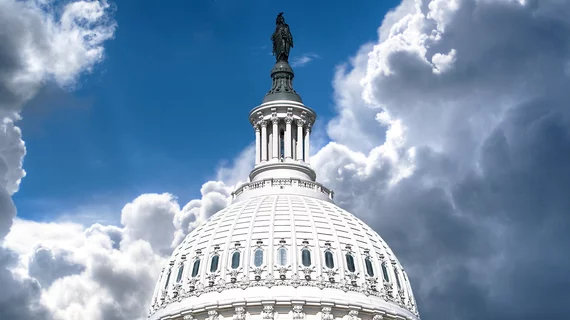Cardiologists, other healthcare providers speak out against ‘detrimental’ cuts included in MPFS final rule
The Centers for Medicare and Medicare Services (CMS) has released the 2021 Medicare Physician Fee Schedule (MPFS) final rule, leaving healthcare organizations throughout the United States with concerns about what new reimbursement cuts might mean for business going forward.
The final rule includes a conversion factor decrease from $36.09 to $32.41 and reimbursement cuts that advocacy groups have been fighting for months.
It is widely believed that these cuts could make a serious impact on cardiologists, radiologists, oncologists and other providers who do not frequently bill for evaluation and management (E/M) services. While the American College of Cardiology (ACC) and numerous other organization pushed back when these cuts were first proposed, CMS still moved forward with the controversial policy change.
The ACC highlighted the final rule’s many updates in a thorough breakdown on its website. The group has also indicated that it is working with Congress to “identify and develop” solutions that could help providers in this trying time.
Healthcare groups, including a large coalition, share continued concerns of arbitrary Medicare cuts
With the MPFS now finalized, a large coalition of national healthcare organizations is urging Congress to pass legislation that would help providers survive in the face of these “arbitrary” Medicare cuts and “protect patient access to medically necessary services.” The coalition is made up of numerous cardiology groups, including the American Society of Echocardiography ASE), American Society of Nuclear Cardiology (ASNC) , Association of Black Cardiologists, CardioVascular Coalition, and the Society for Cardiovascular Angiography and Interventions (SCAI).
“If Congress fails to mitigate these cuts, decreases in Medicare payments will further exacerbate the problems occurring across the country with practices and institution-based providers furloughing or cutting staff and an increasing number closing their doors in response to the COVID-19 pandemic,” the groups wrote. "Of great concern is the impact that this will have on access to needed healthcare services, especially for beneficiaries in rural and underserved areas. Our organizations stand united in highlighting that in the end, patients will suffer the most from implementation of these detrimental cuts.”
The Association of American Medical College (AAMC) issued a statement of its own about the final rule, saying its members are “dismayed” by the “sizable cuts in payment.”
“We are deeply concerned that these devastating cuts to physicians, physician practices, and other healthcare professionals are coming at a time when they are serving on the front lines of the COVID-19 pandemic and caring for patients,” according to the AAMC statement. “Cuts to emergency room and intensive care unit physician payments during this pandemic [are] especially concerning.”
The Medical Group Management Association also spoke out, noting its disappointment that CMS “decided to not provide the stability that physician practices require to meet patient needs during this unprecedented public health emergency.”
More information on the final rule is available here.
Cardiology Related Medicare Payments Content:
Cardiologists join fight for better MIPS transparency
Medicare spending on cardiology, interventional cardiology declined $906M in 2020
Cardiologists support legislation that would limit costly Medicare cuts
Congress reaches bipartisan deal to blunt Medicare cuts, drawing praise from radiology advocates
Cardiologists oppose 2 key CMS proposals, warn of ‘unintended consequences’
Women in cardiology receive less money from CMS, submit fewer charges
CMS finalizes 2022 Medicare Physician Fee Schedule — payments to cardiologists take a hit
Cardiologists urge CMS to reconsider MPFS changes that could ‘jeopardize the delivery of care’

